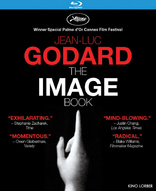The Image Book Blu-ray Movie
HomeThe Image Book Blu-ray Movie 
Le livre d'imageKino Lorber | 2018 | 85 min | Not rated | May 21, 2019
Price
List price:Amazon: $17.49 (Save 50%)
Third party: $17.49 (Save 50%)
Only 1 left in stock (more on the way).
Movie rating
7 | / 10 |
Blu-ray rating
| Users | 0.0 | |
| Reviewer | 4.0 | |
| Overall | 4.0 |
Overview
The Image Book (2018)
Nothing but silence. Nothing but a revolutionary song. A story in five chapters like the five fingers of a hand.
Narrator: Jean-Luc GodardDirector: Jean-Luc Godard
| Foreign | Uncertain |
| Drama | Uncertain |
Specifications
Video
Video codec: MPEG-4 AVC
Video resolution: 1080p (upconverted)
Aspect ratio: 1.78:1
Original aspect ratio: 1.78:1
Audio
English: DTS-HD Master Audio 7.1
English: DTS-HD Master Audio 2.0
Subtitles
English
Discs
Blu-ray Disc
Single disc (1 BD)
Playback
Region A (C untested)
Review
Rating summary
| Movie | 4.0 | |
| Video | 3.0 | |
| Audio | 4.5 | |
| Extras | 4.5 | |
| Overall | 4.0 |
The Image Book Blu-ray Movie Review
A visual essay by the brilliant Jean-Luc Godard
Reviewed by Neil Lumbard June 13, 2019Jean-Luc Godard's The Image Book is a uniquely crafted feast for the eyes. The highly absorbing visual-essay is a fascinating exploration of humankind's journey as explored through five vignette chapters. The filmmaking explores the rich tapestry of cinema's narrative through a impressive roster of unique chapters exploring the trajectory of filmmaking and its role in culture.
Unlike many of Godard's early narrative features like Breathless and Band of Outsiders, The Image Book is a vastly different beasts of a production. The film doesn't utilize any traditional narrative storytelling devices employed within his earlier works and is instead a piece aimed squarely at provoking thought and discussion.
There are no actors or set pieces. No costumes or sets. The entire film is edited together as a montage of clips from dozens of sources. The film features news reel footage and old film clips to synchronize an impressive array of images. There is also additional original footage filmed by Godard himself. The clips are edited together in an absorbing way and the end result is a film experience which feels like a much more rewarding artistic experiment than something that would be classified simply as being mere entertainment.
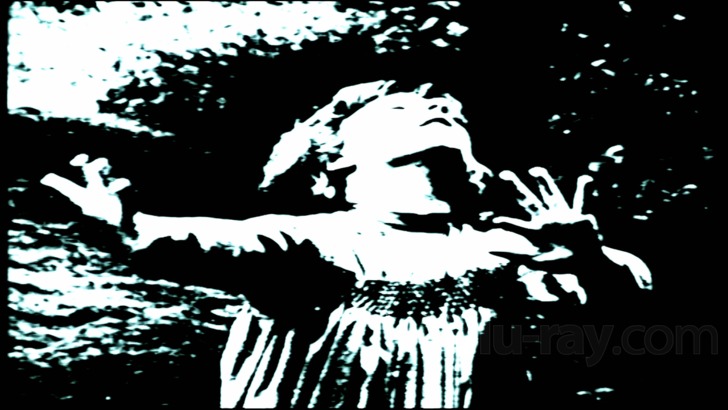
An experience in five chapters.
Godard enjoys tinkering with films to create experiences that can play with audiences in unique ways: The Image Book is no exception for the director. The feature uses cross-fades, spatial image editing techniques, and a variety of creative sound design decisions to make the feature more creative and engaging.
Cinematographer Fabrice Aragno (Goodbye to Language) utilized footage which was edited entirely in standard-definition. This feature is not your typical visual experience. Godard's stylistic approach here is much different than a big-blockbuster production. At every turn in the filmmaking, the image is highly manipulated to create imagery which is bizarre and intense. The colors are blown out and the image is often stretched. During some sequences, the film is filled with an intense level of desaturation as well. The end result? An interesting visual experiment that feels like nothing else out there.
Few filmmakers are gifted enough to make a visual-essay as absorbing and intellectual as an experience. Few filmmakers would even have the creative ambition to try and make such a concept succeed. Godard is one of those few experimental artists who truly feels a urge to try new things with each film. With this effort, Godard finds true success.
The Image Book washes over audiences with it's stylistic flourishes and impressive craftsmanship. As a special recipient of a special jury-selected Palme d'Or at Cannes, the feature marks a triumph of filmmaking. This visual essay stands out as one of Jean-Luc Godard's best films produced in his late-period career.
The Image Book Blu-ray Movie, Video Quality 
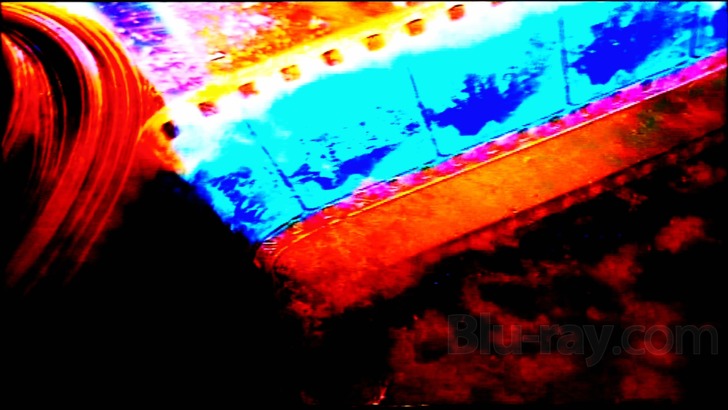
The transfer of The Image Book is presented in the original theatrical aspect ratio of 1.78:1 widescreen with a 1080p MPEG-4 AVC encode. However, this is an unusual presentation to review from a picture quality standpoint. The entire film was edited on video-tape and is thus in standard definition. The film has some of the worst looking photography ever put on Blu-ray from a purely technical standpoint so it's important to keep that in mind. However, I have every confidence that this film looks exactly as it was intended to look on this release. Kino has encoded and presented the film exactly as intended by Godard.
The film purposefully manipulates the imagery to interesting effect by warping the images with dramatic color-inversion, blown highlights, exaggerated color temperatures, stretched images and cropped frames. The image also has purposeful image drop-outs, filters, artifacts, aliasing, and other video detriments that would normally garner a film a terrible score for video. However, seeing as how this film was purposefully designed this way, I'm giving it's score a moderate and respectful rating of 3 stars due to Kino doing a excellent job of reproducing the film's aesthetic as intended.
The Image Book Blu-ray Movie, Audio Quality 
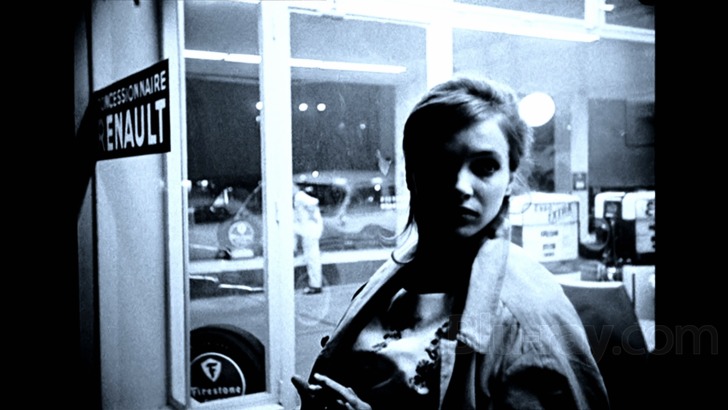
The audio is presented in 7.1 DTS-HD Master Audio. This is an immersive and engaging sound mix which is full of sound effects designed in the usual "Godard" style with a whole range of interesting distortion intentionally done for creative purposes: occasional clipping, audio drop-outs, and more fascinating decisions. These faults are not remotely the fault of Kino's disc but the fact that Godard intentionally enjoys messing with his audiences with his sound designs and with the narration creeping into the surrounds in a furious and surprising manner. From a technical perspective, this is an amazing sound presentation which has crisp dialogue and first-rate music reproduction. The soundstage is quite immersive and detailed. It's a great sound mix that stands out for its impressive technical quality while simultaneously experimenting with the sound design.
The Image Book Blu-ray Movie, Special Features and Extras 
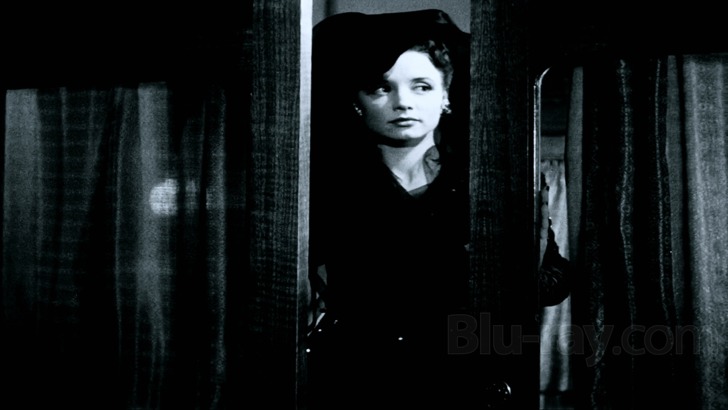
This release features a booklet with an essay written by TIFF (Toronto International Film Festival) producer Fabrice Aragno.
On disc supplements include:
Conversation featuring researcher and critic Nicole Brenez at the 2019 International Film Festival Rotterdam (HD, 1 hr. 38 min. 32 sec.) as conducted as part of a master class film series spotlighting filmmakers and their frequent collaborators from the film festival. The sit-down discussion involves moderator Olivier Pierre and features Godard collaborator Brenez. The sit-down is an in-depth discussion and exploration of the film and its translation from a book to a feature. The piece also delves into the film's photography, meaning, and the process of Godard as a filmmaker and what it is like for his collaborators to work with him. The supplemental feature also includes behind the scenes footage of Godard's unique Face Time iPhone press conference for the film's premiere (in which reporters asked him questions solely via iPhone).
Interview with producer and director of photography Fabrice Aragno (HD, 30 min. 33 sec.) is a highly informative interview with the director of photography about his process and what it is like working with Godard. Interestingly, the director of photography explains how he was not a fan of Godard's filmmaking, and didn't take much away from his films when he was in film school. Even some of Godard's collaborators, it seems, are critics.
Trailers for other Godard releases from Kino Lorber: The Image Book (SD, 1 min. 38 sec.), The 22nd Ji.hlava International (HD, 1 min. 04 sec.) (a documentary film festival trailer directed by Godard), Film Socialisme (HD, 1 min. 17 sec.), and Goodbye to Language (SD, 1 min. 27 sec.)
The Image Book Blu-ray Movie, Overall Score and Recommendation 
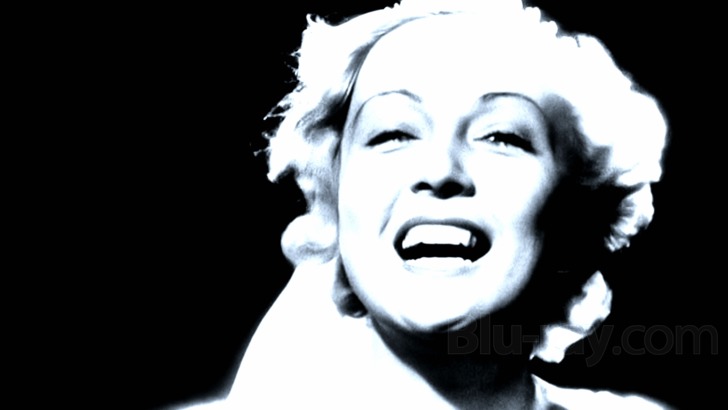
It isn't every day one experiences a film which has the ability to stun and leave a lasting impression on audiences. The Image Book is a rare gem of creative filmmaking that manages to enrich viewers with its brilliant use of editing techniques and unique photography.
Though the film was edited in standard-definition (making it a rare anomaly for the Blu-ray format), Kino Lorber has reproduced the image as it was intended and the video-quality is true to the source materials utilized. The encode properly presents the film as it was envisioned by the filmmakers. With a stunning aural experience, the surround sound is brilliantly utilized and presented in lossless glory. The release also includes a plethora of engaging supplemental features which are well worth ones time. This release deserves my highest recommendation.
Similar titles
Similar titles you might also like

Transit
2018

La Chinoise
1967

Le Petit Soldat
The Little Soldier
1963

Breathless
Ŕ bout de souffle
1960

Forbidden Games
Jeux interdits
1952

The Painted Bird
Nabarvené ptáce / Slipcover in Original Pressing
2019

Masculin Féminin
1966

Omar
2013

Jules and Jim
Jules et Jim
1962

La Bęte Humaine
1938

Young & Beautiful
Jeune et jolie / Slipcover in Original Pressing
2013

Heroic Purgatory
煉獄エロイカ
1970

Goodbye to Language 3D
Adieu au langage
2014

Elles
2011

The Marriage of Maria Braun
Die Ehe der Maria Braun
1978

The Fire Within
Le feu follet
1963

I Live in Fear
Ikimono no kiroku
1955

Out 1
Out 1, noli me tangere
1971

Things to Come
L'avenir
2016

Let the Sunshine In
Un beau soleil intérieur
2017
